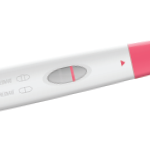Mitigating Preeclampsia
“Of the three pregnancy complications we assessed, mitigating the risk of preeclampsia will do the most to reduce the risk of preterm birth and cesarean delivery in women with RA, SLE and psoriasis,” says Dr. Bandoli. “However, we would not expect it to have as much impact on those outcomes in women with IBD.”
For women with IBD, the study findings didn’t provide information on any pregnancy complications that may explain the excess risk of adverse pregnancy outcomes, according to Dr. Bandoli. “[This] suggests that either the disease directly affects the risk, instead of through pregnancy complications, or it’s operating through mediated pathways that we did not consider” she says.
The data also do not suggest that interventions targeted at pregnancy infection or gestational diabetes will have much of an impact on reducing these select adverse birth outcomes in women with autoimmune disease, Dr. Bandoli says.
Mary Beth Nierengarten is a freelance medical journalist based in Minneapolis.
Reference
- Bandoli G, Singh N, Strouse J, et al. Mediation of adverse pregnancy outcomes in autoimmune conditions by pregnancy complications: A mediation analysis of autoimmune conditions and adverse pregnancy outcomes. Arthritis Care Res (Hoboken). 2020 Feb;72(2):256–264.

